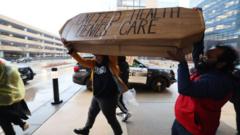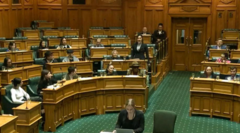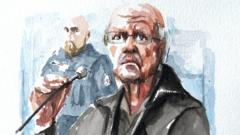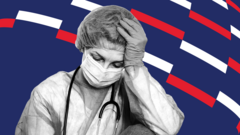Brian Thompson's killing in New York has become a rallying cry for those frustrated with the U.S. healthcare system, as protestors voice their grievances against insurance practices that lead to denied claims and escalating medical costs.
Insurance CEO's Murder Sparks Nationwide Outcry Over Healthcare System Failures

Insurance CEO's Murder Sparks Nationwide Outcry Over Healthcare System Failures
The assassination of UnitedHealthcare’s CEO ignites anger over the complexities and injustices in the U.S. health insurance industry.
The fatal shooting of Brian Thompson, the CEO of UnitedHealthcare, outside a New York hotel has shocked the nation and laid bare a growing resentment toward the U.S. healthcare system. Following the assassination, many Americans have expressed their discontent with the health insurance industry, particularly its practices related to claims and prior authorization processes, which can delay or deny crucial medical care.
This July, protests erupted outside UnitedHealthcare’s headquarters in Minnesota, where over 100 demonstrators voiced their frustrations over claim denials that left patients without essential treatments. More than eleven protesters were arrested for blocking roads, drawing participants from various states who shared their personal experiences with inequities in the healthcare system.
Thompson’s killing has drawn attention not only due to its brutality but also due to the symbolic message it seemingly conveys about the rage directed at the healthcare industry. Police investigators noted cryptic messages found on shell casings at the scene, including the words "deny," "defend," and "depose," which many interpret as criticisms of the tactics used by insurers to maximize profits at patients' expenses.
Thompson, who had previously taken steps to make drugs more affordable, had received threats in the past, as revealed by his wife, Paulette. Security experts believe these threats are indicative of the deepening frustration among the American public regarding soaring healthcare costs, which often lead individuals to feel desperate and powerless.
While industry leaders mourn the loss of Thompson, online reactions reveal a starkly different sentiment among many who have had negative experiences with health insurers. Social media comments ranged from mocking quips about thoughts and prayers to outright celebrations of Thompson’s death, as critics pointed out their grievances against the insurance model that prioritizes corporate profits.
This broad discontent transcends political affiliations, with frustration coming from various groups unhappy about the U.S. healthcare system's bureaucratic complexities. Advocacy groups maintain a commitment to nonviolent protest but acknowledge the intense sentiments of those wronged by insurance companies.
A comprehensive study indicates that about 45% of insured working-age adults have faced unexpected charges for services they believed to be covered, while 17% reported denials for treatments their doctors recommended. The circumstances surrounding Thompson's death may serve as a grim reminder of the healthcare system's shortcomings enduring through rising costs and insufficient coverage, which has culminated in a medical debt crisis unique to the United States.
With lawsuits and government investigations increasingly targeting major insurance companies over their practices, the sentiment towards the industry remains fraught with tension. Thompson's case may become a pivotal moment in a larger discussion about healthcare in America and the desperate need for reform in a system that continues to impose profound challenges on its citizens.





















